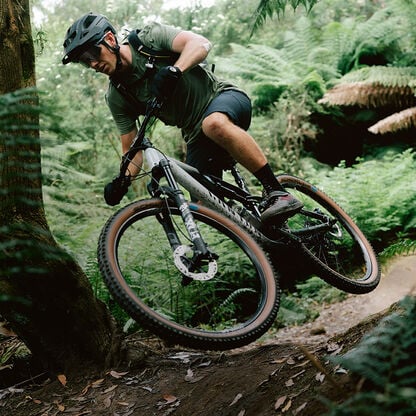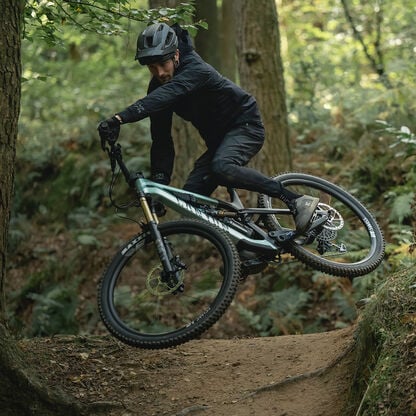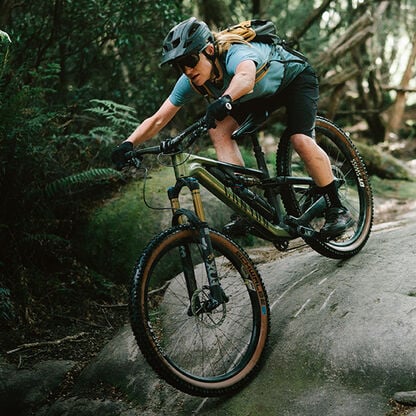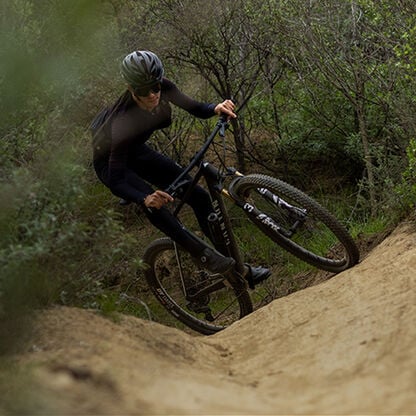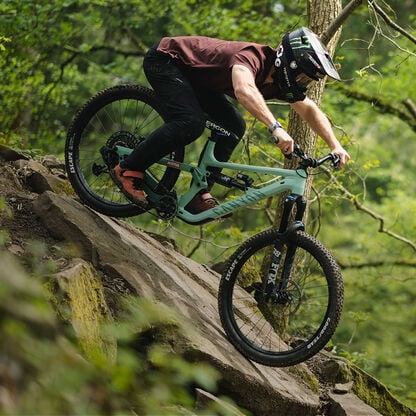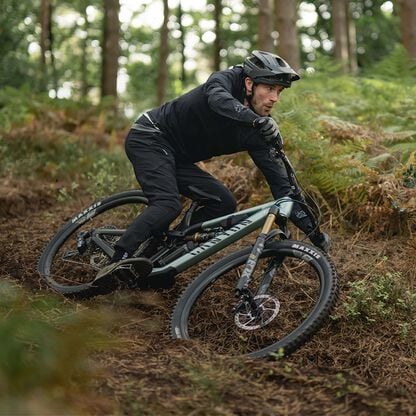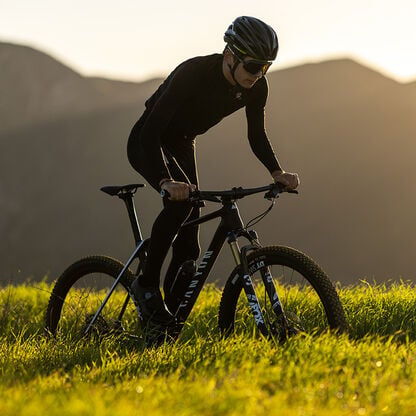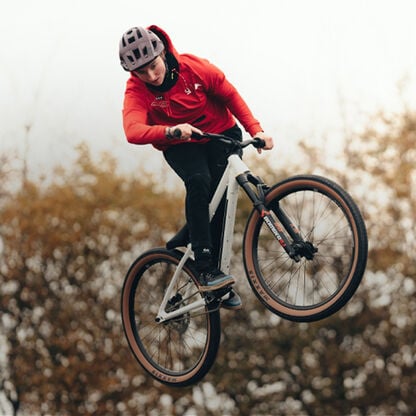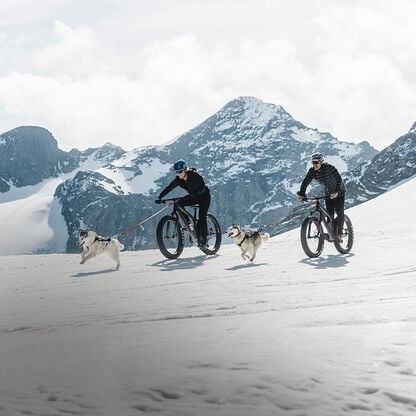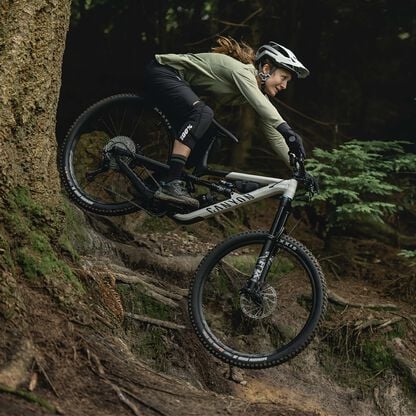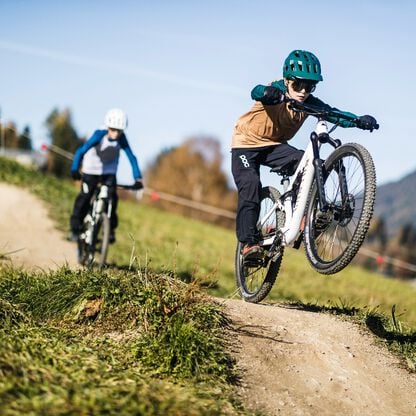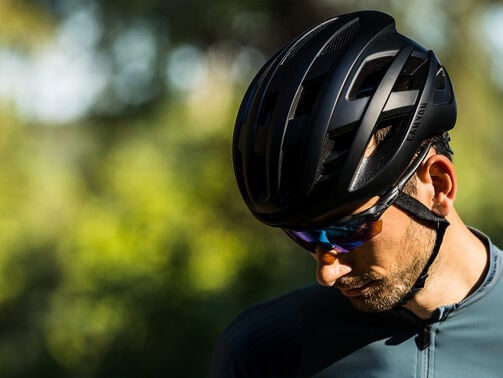How to prepare your mountain bike for winter
There’s no need to leave the bike in the garage this winter with our tips for protecting your mountain bike from the harsh winter weather.
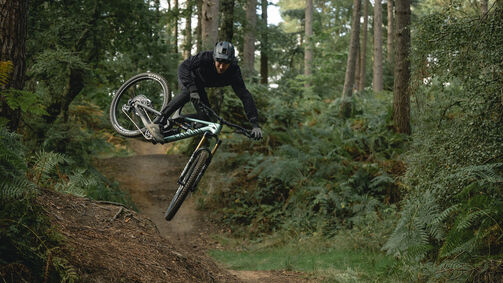
Thinking of riding your mountain bike in winter? Mountain biking is great year-round, we have a few tips to keep your bike in tip-top condition throughout the harshest season.
Whether you're a novice or seasoned mountain biker, use this article as a checklist to ensure you're ready for what winter brings.
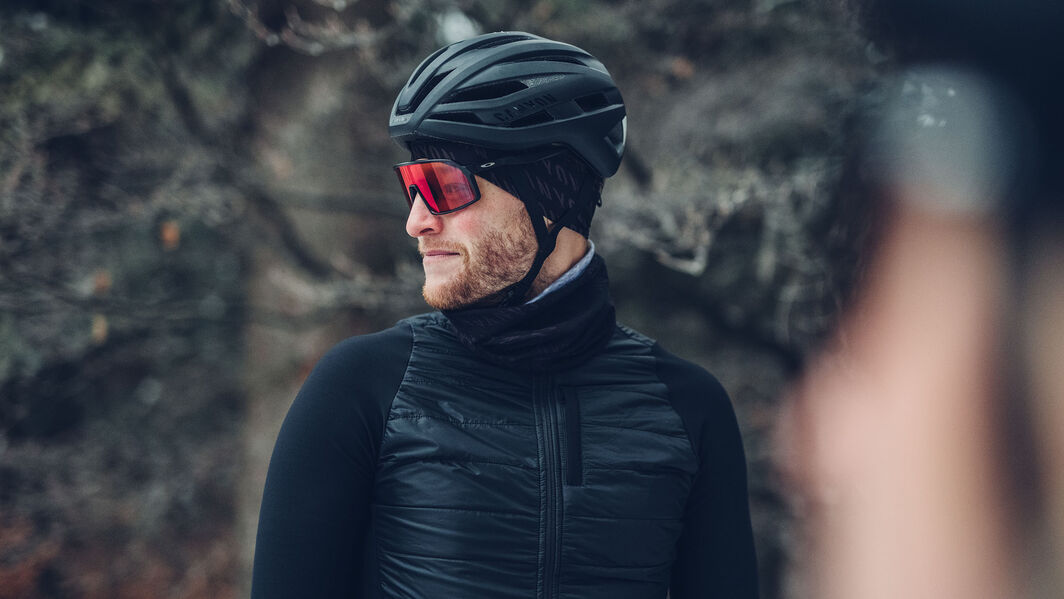
Winter mountain biking kit
First things first: protect yourself against the elements. Keeping warm is essential for your health and enjoyment of mountain biking. Crucially, it's important to have layers. Climbing will get your heart racing, while descending can make you chilly.
Get yourself the following bits of kit as a bare minimum:
• Waterproof jacket (like our DEFEND+ rain jacket)
• Waterproof cycling socks
• Winter cycling gloves
• Thermal or merino base layer
• Neck snood or hat
• Clear glasses
Merino layers are a great option for keeping warm in winter. Read more about the benefits of merino cycling kit.
Your extremities feel the cold quickest. Keeping your hands warm will not only increase the fun factor of mountain biking but it's also a safety consideration. Not being able to operate the brakes will quickly end your ride in the worst way possible. Make sure your feet are warm and dry with waterproof socks and warm shoes, and you'll be pedalling for hours.
You need to see where you're going, so a pair of clear glasses is a great idea. You can keep the mud out of your eyes and wipe them clean if it gets particularly mucky when you’re out on your mountain bike.
Wear as many layers as needed and pack spares in a rucksack for emergencies. Be prepared for whatever the weather (and your mates!) throws at you.
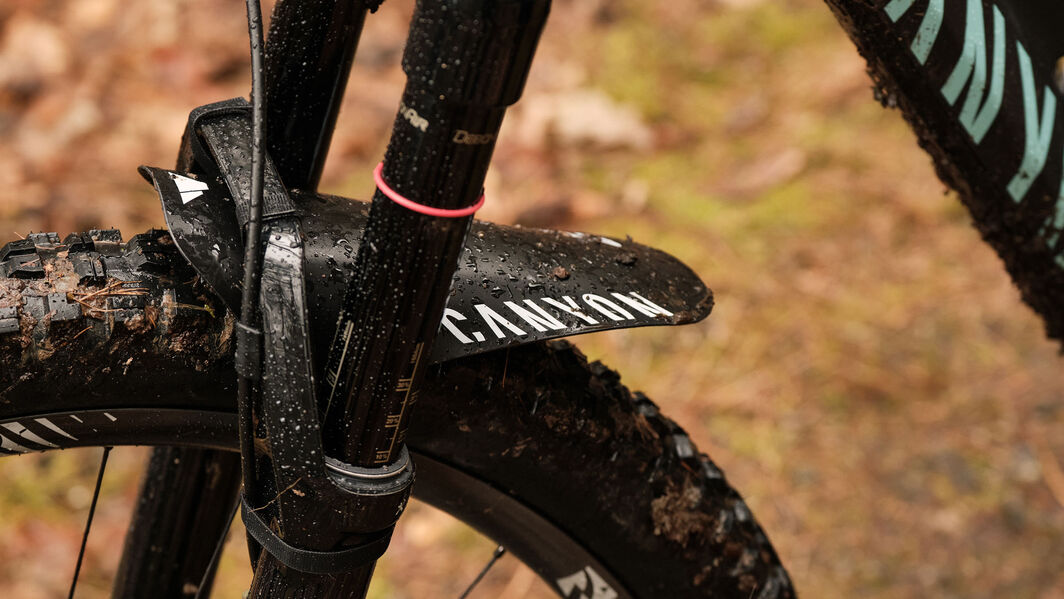
Add mudguards and frame protection
Protecting your frame and components will make your bike last a lot longer.
A mudguard on the fork keeps your face and kit clean (well, mostly anyway). It also protects the wiper seals in your fork lowers from accumulating too much dirt. This means you might be able to reduce the wear and tear from riding in the mud.
If you're in the market for a brand new bike and winter is looming, it's a good idea to invest in a frame protection kit before your first ride. Frame protectors keep the paint work in good condition. This is particularly valuable when it comes to selling your mountain bike in a few years' time.
Lights, batteries, action!
Winter riding means you're more likely to ride in the dark. Bringing a couple of sets of bike lights with you is an absolute must. If you ride to the start of your trails, you'll need lights suitable for traffic (i.e. not so bright they blind drivers), and a different set of lights for riding the trails.
Lights for mountain biking should be extremely bright. You’ll need to see as many roots, trees and rocks as far down the trail as you can. The best way of ensuring you don’t miss anything is to use a set of lights mounted to your handlebars, and another to your cycling helmet. The benefit of having a light on your helmet is that it'll illuminate exactly what you're looking at rather than what your bike is pointing at.
It sucks if you run out of battery and can't keep riding, so make sure your lights are fully charged. Bring a power bank or spare set of batteries just in case.
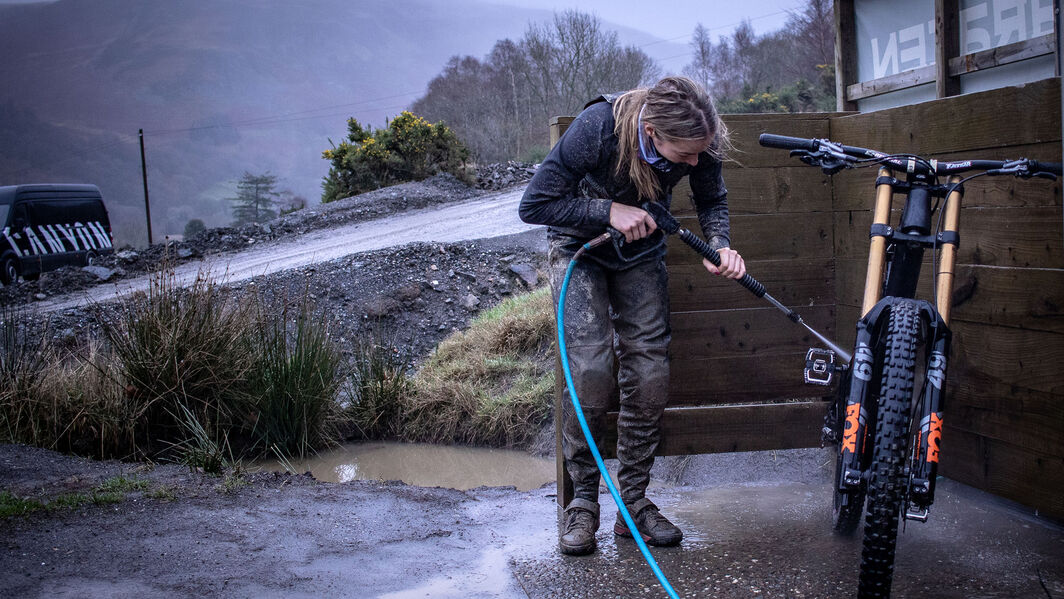
Clean your MTB regularly
Getting into the routine of cleaning your mountain bike will pay off in the long run. You’ll save money on spare parts and have more time riding instead of repairing. Unlike summer riding, you'll come back from most rides with way more than a thin layer of dust. Bike parks often have bike washing facilities, so make use of them before you leave.
When you get home, make sure you spray the bike down at the very least. Get all the mud off before it dries and make sure all the moving parts are still, well, moving.
Waxing or lubricating your chain regularly after a wash and before you ride will protect your drive train from seizing up.
Our guide to winter bike maintenance covers off all the essential aspects of keeping your bike moving in winter conditions.
Swap your pedals
If you usually ride clipped-in, you might find flat pedals a better option in winter. Owing to the slippier conditions, you'll be better able to dab on muddy trails to stay upright. Jumping on and off the bike is also a lot more common as the trails deteriorate. Having mountain bike shoes without a cleat gives you better grip while walking.
Muddy conditions can also mean clipless pedals get covered in mud easily. It can sometimes be tricky to free the locking mechanism of mud while you're riding. Flat pedals, on the other hand, easily shed mud.
To find out more about the benefits of flat vs clipless pedals, check out our guide which will help you make a decision.
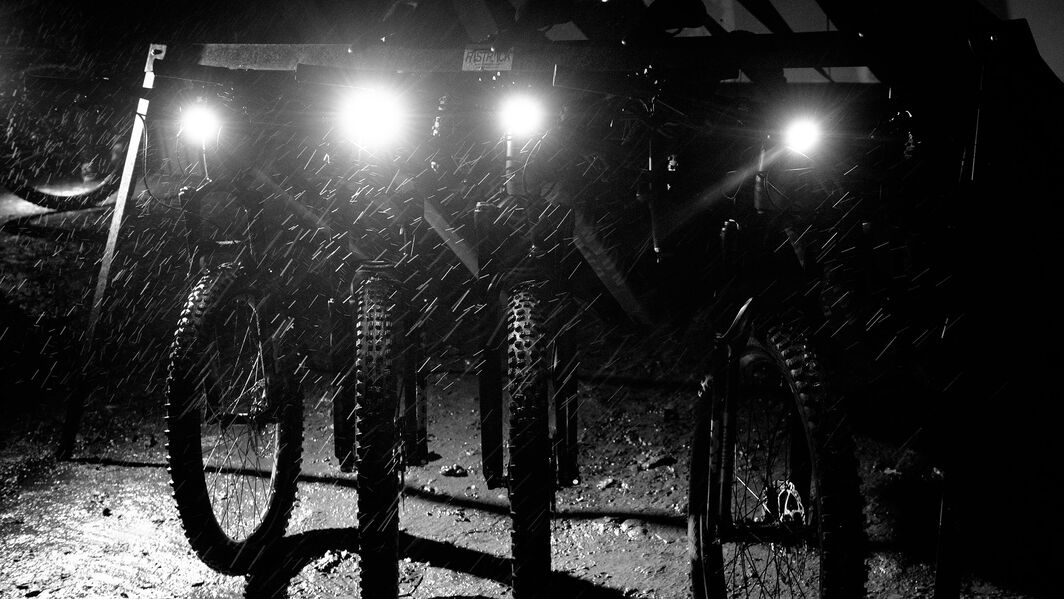
Choose your tyres carefully
A trail ridden in summer can feel like a completely different trail when ridden in winter. Weather, temperature, and how frequently others ride it all have an impact.
Fitting proper mud-friendly tyres to your bike will help you schlep through the sludge with more confidence. A deeper profile but narrower width tyre can cruise through the worst of it.
If you ride in snow or ice, look for ice tyres. They have small metal studs in the knobbly bits of the tyre to add more grip.
Discover our Mountain Bikes
Did this article help?
Thank you for your feedback
